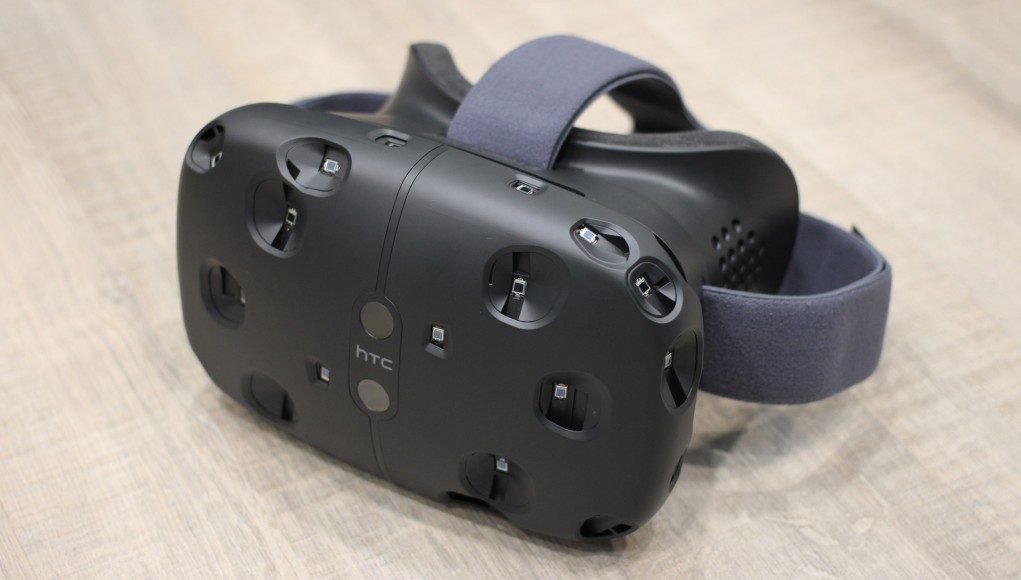Epic Games has today announced that the company will be releasing an Unreal Engine 4.8 preview build next week which will offer support for Valve’s highly anticipated SteamVR / HTC Vive. Epic says that even developers who don’t have access to the HTC Vive headset can start building supported VR experiences with Unreal Engine 4.8.
Road to VR reported earlier this week that Epic was working on SteamVR / HTC Vive support for Unreal Engine. The company has now confirmed that developers can get their first taste of the integration starting next week with an Unreal Engine 4.8 preview build.
 Between the two major VR game engines (Unreal and Unity), Unreal Engine will be the first to support Valve’s SteamVR platform. Epic says that Unreal engine also supports Oculus Rift, Samsung Gear VR, Leap Motion, and Sony Project Morpheus.
Between the two major VR game engines (Unreal and Unity), Unreal Engine will be the first to support Valve’s SteamVR platform. Epic says that Unreal engine also supports Oculus Rift, Samsung Gear VR, Leap Motion, and Sony Project Morpheus.
“We work closely with Valve to ensure Unreal Engine 4 is highly optimized for the latest SteamVR features, with particular focus on minimized latency,” said Nick Whiting, lead engineer at Epic Games.
Whiting told me that anyone can begin building SteamVR experiences with the Unreal Engine 4.8 preview, even if they don’t yet have their hands on the HTC Vive Headset. As SteamVR supports the Oculus Rift DK2, developers can use the headset to prototype their experiences, according to Whiting.
See Also: HTC Vive Developer Edition Signups Now Open, Free for Selected Devs but Not for Sale
Valve, who are still working on the second version of their popular ‘Source’ game engine, is in full support of Epic’s integration of SteamVR. Whiting told me that the company sent engineers to assist Epic with the process.
“Epic is once again taking a leadership position in the technology solution space by embracing the industry-wide momentum toward VR,” said Valve’s Gabe Newell.
“I really get the impression that [Valve] want to see VR succeed no matter who’s doing it,” Whiting told me.
See Also: Valve’s Joe Ludwig to Talk ‘OpenVR’ and ‘Lighthouse’ Hardware Partners at SVVR Expo

He also said that the Unreal team had already ported their Showdown and Lord of the Rings VR demos to work with SteamVR and the HTC Vive. While those demos are still internal to Epic, Whiting said that a public release of Showdown was possible—assuming you can run it at the ideal 90 FPS!
“If you want to run something like Showdown, the baseline GPU is an Nvidia GTX 980,” Whiting said. “If you’re going to run something more simple like Couch Knights, you could get away with a GTX 780.”
As for the minimum CPU needed to power SteamVR scenes, Whiting also had some recommendations.
“Most modern CPUs are pretty good, but usually around 3.3GHz to 3.6GHz minimum is best,” he said. “We tried it on some workstations (which have lots of cores at lower speed), which was a little slow to keep up at 90 FPS but as soon as you put it on a Core-i5 or Core-i7 it works pretty well.”
When I asked Whiting why VR developers should pick Unreal Engine over Unity, he highlighted the engine’s “awesome, physically based renderer” and ‘Blueprint’ system which allows game designers to build experiences without extensive programming knowledge.
Lead photo courtesy Maurizio Pesce (CC BY 2.0)







